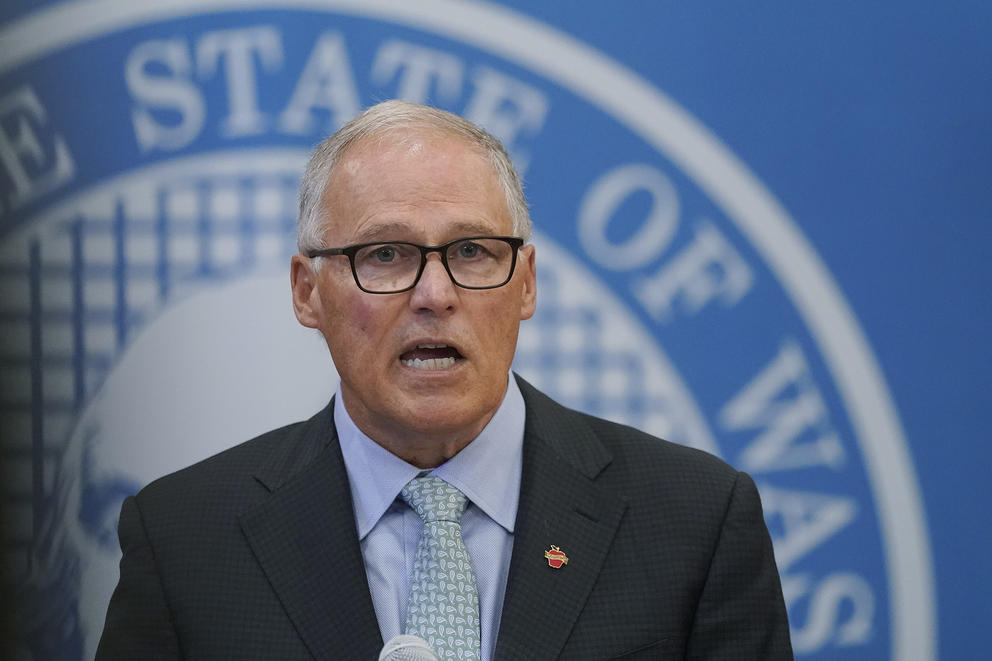It won’t hit everyone equally, of course; if you’re a single tech worker working from home, you might not notice a thing. But if you’re a low-income renter with children and family members vulnerable to COVID-19, brace yourself.
Taken together, these six factors have the potential to burst out into a social and political crisis.
First, of course, is delta. COVID-19 cases have been rising in King County since the beginning of July, and by now what’s spreading is overwhelmingly the more contagious delta variant. Hospitalizations in Washington state are at an all-time high. There’s new evidence that the vaccines’ effectiveness may wane over time. Already we’re back to mask mandates; what happens if things get palpably worse?
Second, school starts — for the most part in person. For many parents this will come as a huge relief, but it brings fresh anxieties and perils, too. Some kids will get sick with COVID-19. Their classmates and teachers will have to be tested, and significant numbers may be quarantined. What if some kids get really sick? Transmission can happen anywhere, but when it happens at school, the political ramifications multiply.
Third, we’re about to see unemployment benefits end for some 200,000 Washingtonians, with many more set to lose the $300-a-week bump that the federal government has been piling on top of state benefits. This blow lands on Labor Day, a fact that is either ironic or appropriate, depending on your perspective.
Fourth, some renters will be hit with rent hikes — the first in a year and a half. Gov. Jay Inslee’s “bridge proclamation,” which replaced the statewide eviction moratorium on July 1, allowed landlords to start issuing 60-day rent increase notices. In September, the first of those notices will go into effect.
Fifth, eviction protections expire Sept. 30. That includes the bridge proclamation, the national moratorium and local emergency protections in Seattle, Kenmore, Kirkland and Burien. In what has become an exhausting ritual, elected officials will likely wait until the eleventh hour before announcing any decisions on extending protections, leaving renters and landlords in a stressful limbo.
Sixth and finally, rent assistance is moving at a snail’s pace; as of mid-August, less than 5% of King County’s federal rent assistance funds had been disbursed. The more time passes without relief, the more landlords are likely to decide that giving indebted renters the boot through large rent increases or eviction makes more sense than abiding by the programs’ rules and continuing to wait.
Put all that together, and it sounds pretty bad. Can we just hang out in August for a while?
Maybe it won’t be so bad. On the plus side, despite the rising hospitalizations, COVID-19 deaths in Washington state are so far staying fairly flat. That’s great news. And there are plenty of jobs out there — if you’re not picky, able to do pretty much anything, willing to work for a low wage, have child care sorted out and aren’t too worried about contracting the virus. Maybe rent assistance programs will clunk into gear, school will proceed with minimal bumps, and we’ll all learn how to manage the delta menace. Maybe we’ll be mostly fine.
Or maybe not.
If I were an elected official, my top concern right now would be preventing more people from losing their homes. As tensions over visible homelessness continue to rise, here and around the country, the last thing we need is more people falling into preventable homelessness right as the weather turns wet and cold. To that end, here are two simple things — easy on the public purse, if not politically easy — that policymakers can do right out of the gate in September.
First, Inslee and local elected officials should go ahead and extend eviction protections through the end of the year. Rent assistance will clearly take a few more months to get out the door, and creating a period of stability for the 200,000 Washingtonians who are about to lose their income seems prudent. Officials should make this decision and announce it without delay, instead of leaving renters, landlords and their advocates to fight it out till the last minute.
Second, there are signs we may be entering a period of rapid rent increases. With a clear link between rent hikes and homelessness, that’s bad news. Here in Washington, local policymakers are constrained by our state law banning rent control. But they can disincentivize large rent increases and reduce the likelihood that they leave people homeless. Portland passed such a law in 2017: If a landlord raises the rent 10% or more within a year and the tenant moves out, the landlord must pay relocation assistance of $2,900 to $4,500, depending on unit size.
In Seattle, Councilmember Kshama Sawant has long pushed for a law to address “economic evictions.” In her version, renters up to 80% of the area median income would be eligible to receive three times their monthly rent in relocation assistance from a landlord who raises the rent 10% or more. Now’s a good time to get a law like this on the books in Seattle, and other jurisdictions in King County should do the same.
I hope I’m wrong to be worried. At this point in the pandemic, it feels like our predictive faculties are as exhausted and confused as the rest of ourselves. But it’s best to be ready for anything.



